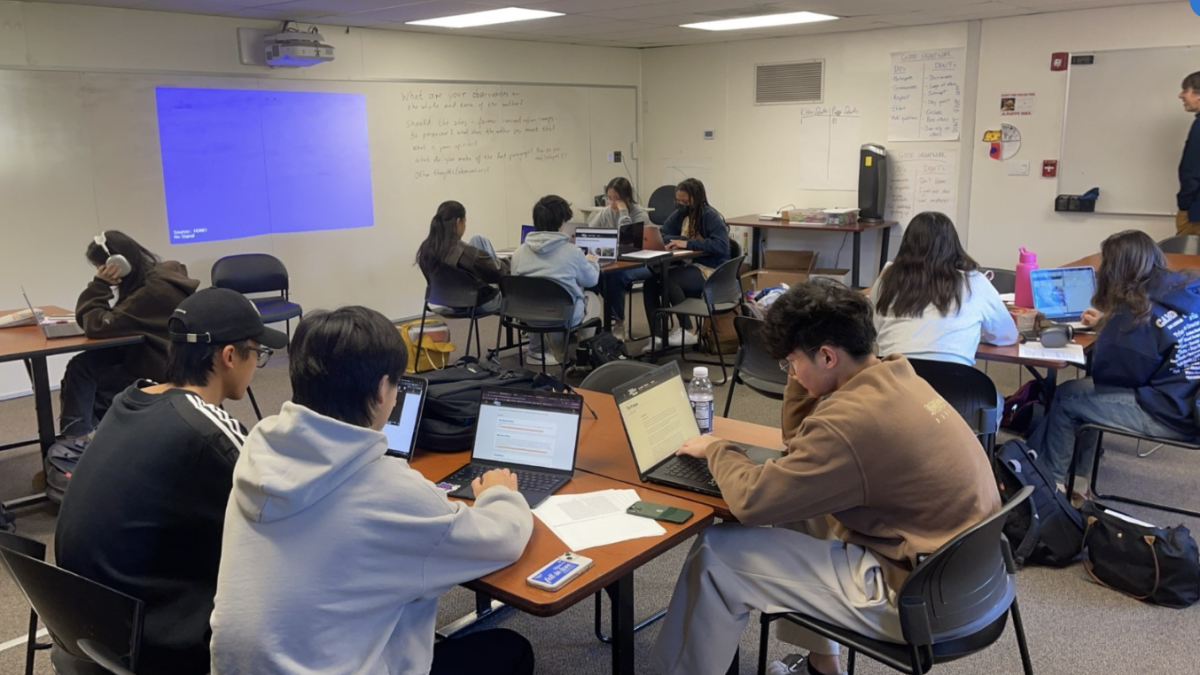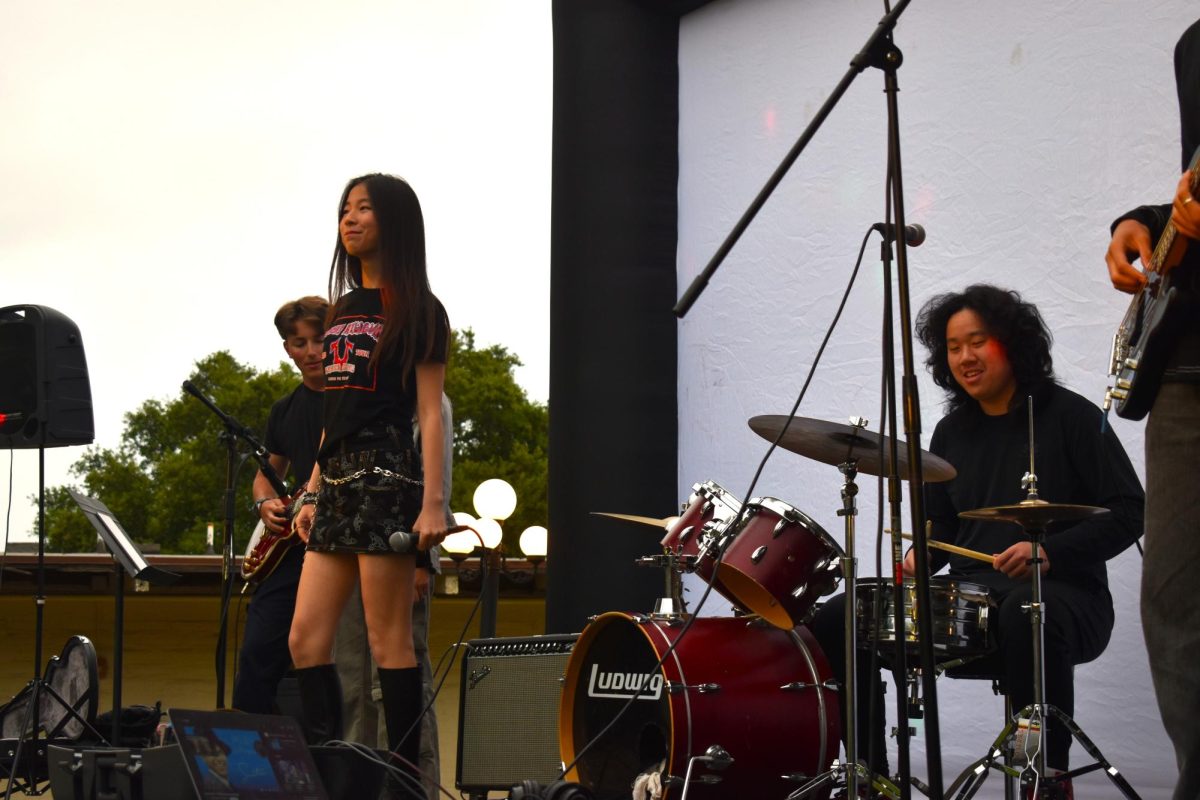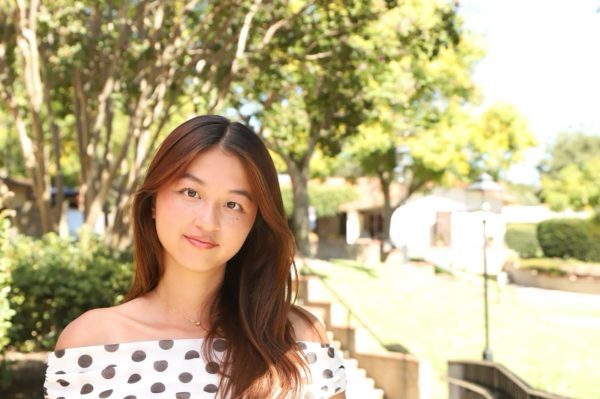“What emotions does this image evoke?” the teacher asks, as students study a Nazi propaganda poster projected on the screen. Hands shoot up as students analyze the imagery, colors, and slogans of the image, connecting them to the broader influences of fascist regimes. The discussion weaves through Mussolini’s Italy, Nazi Germany, and the power of propaganda in shaping societies.
This is not your average high school history class — it is an Advanced Studies humanities course at Webb.
Most high schools across the country follow a standardized curriculum with courses like Advanced Placement (AP) and International Baccalaureate (IB). At Webb, however, the Advanced Studies (AdvSt) program serves as an innovative replacement for these standardized courses. This model is one of the defining features of Webb’s curriculum and distinguishes its humanities department from other high schools.
The process of creating an Advanced Studies course starts with the teachers. Unlike many high schools that use a pre-defined curriculum such as AP or IB courses, Webb encourages teachers to design classes that align with their academic interests and professional backgrounds. Teachers propose new courses, which are then reviewed by the academic committee and the UC systems to make sure that they meet the necessary graduation criteria. In fact, every single humanities course at Webb is created by a teacher at some point.
Humanities department chair Elizabeth Cantwell–who contributed two courses to Webb’s humanities department- Advanced Studies Gothic and Literature and Advanced Studies the Long Novel–talks about her process and motivations for creating her own course.
“My motivation behind Gothic was that I love horror literature and horror films, and I think that it’s a genre that is underrepresented. I wanted to create a course to allow students to access what I thought was a very deep theme in art and literature and film,” Dr. Cantwell said.
The freedom for teachers to create individualized courses not only benefits the student but also keeps teaching at Webb more engaging.
“When teachers are more passionate about what they teach, they are more engaged, and students can feel that. I’ve had some of the best experiences teaching students who are genuinely interested in the subject,” Dr. Cantwell said.
Dr. Cantwell also believes that AP and IB classes are less specific, and many students take these classes just to get a GPA boost. On the other hand, students who choose to take Advanced Studies classes are usually excited about the topic and the prospect of diving deep into texts and content relating to it.
Traditional high school curriculums often prioritize coverage over depth, with students studying broad topics to meet college requirements. However, Webb’s Advanced Studies classes challenge students to think critically, explore different ideas, and apply what they learn in real life.
“I like how Webb lets us choose classes based on our interests once we are an upperclassman. It makes learning so much more enjoyable when what I am learning is what I want to learn about,” said Jia Ni (‘26).
Webb’s commitment to innovation does not stop with its current offerings. The Advanced Studies humanities program is continually evolving, with teachers planning to pitch courses for upcoming academic school years. Some of these class proposals include topics such as Music History and Changes in the American Presidency.
Webb’s Advanced Studies Humanities program reflects the school’s commitment to providing a distinctive, forward-thinking education. By allowing students to take courses they are passionate about, Webb ensures its students are not only prepared for college but also equipped to engage with the world around them.















